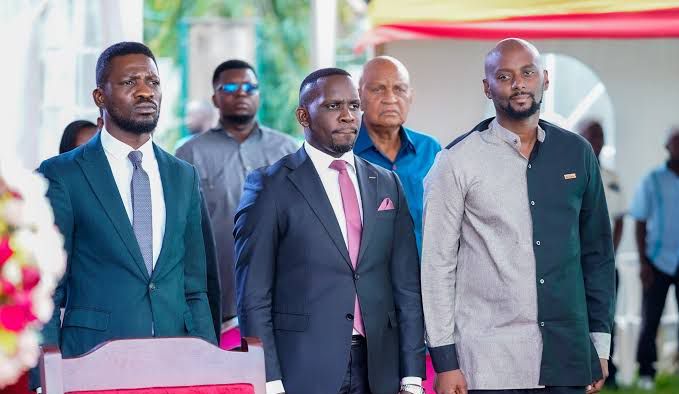
Leader of Opposition in Parliament (LoP), Hon. Joel Ssenyonyi, is at the center of fresh controversy following reports that he has allegedly received a Shs 650 million award from Parliament — a development that has sparked sharp public debate and comparisons to the 2023 scandal that led to the sacking of his predecessor, Hon. Mathias Mpuuga.
According to sources within the Parliamentary Commission, the payment to Ssenyonyi was processed as a “leadership performance award,” similar to what was earlier described as a “service award” given to Mpuuga during his tenure as Leader of Opposition.
However, the revelation has raised eyebrows, especially among supporters of the National Unity Platform (NUP), who recall that the party leadership condemned Mpuuga for allegedly accepting a Shs 500 million payment under the same arrangement.
It will be remembered that in early 2023, NUP President Robert Kyagulanyi Ssentamu, popularly known as Bobi Wine, accused Mpuuga of “moral corruption” after details of his service award surfaced, leading to his removal from the position of Leader of Opposition.
At the time, Kyagulanyi insisted that the payment was irregular and inconsistent with the party’s principles of transparency and accountability.

Now, with allegations that Ssenyonyi has received an even bigger payout — Shs 650 million — critics have accused the NUP leadership of double standards and hypocrisy. The revelation has triggered intense debate on social media, with some supporters questioning whether the party will apply the same disciplinary action against its current LoP as it did to Mpuuga.
While Parliament has not officially issued a statement confirming or denying the transaction, several MPs have privately admitted that performance-related awards are a common practice for top leaders in the House.
One legislator who preferred anonymity said the awards are “a form of appreciation for service rendered” and are approved through the Parliamentary Commission, which includes the Speaker and representatives from both government and opposition sides.
Efforts to get a comment from Joel Ssenyonyi were futile by press time, as he neither picked nor returned repeated phone calls. However, sources close to him argue that the payment was legitimate and within his entitlement as Leader of Opposition. “This is not corruption. It’s an institutional payment that has been in place for years. Even previous opposition leaders received it,” one of his aides was quoted as saying.
The controversy has, nonetheless, divided opinion within NUP. Some party members argue that the issue exposes inconsistencies in the leadership’s moral stance, while others believe Ssenyonyi’s case should be treated differently if the award was transparently processed through Parliament’s official procedures.
Political analysts say the scandal could test NUP’s commitment to its anti-corruption message and internal accountability. “If Ssenyonyi indeed received Shs 650 million, the party will have to explain how this case differs from Mpuuga’s. Otherwise, it risks losing moral credibility,” one analyst noted.
As public pressure mounts, Ugandans now wait to see whether NUP will maintain its tough line on accountability or tread cautiously to protect its new Leader of Opposition.
Either way, the controversy has once again reignited the debate over how public officials, even in opposition, handle money allocated in the name of service and performance.







